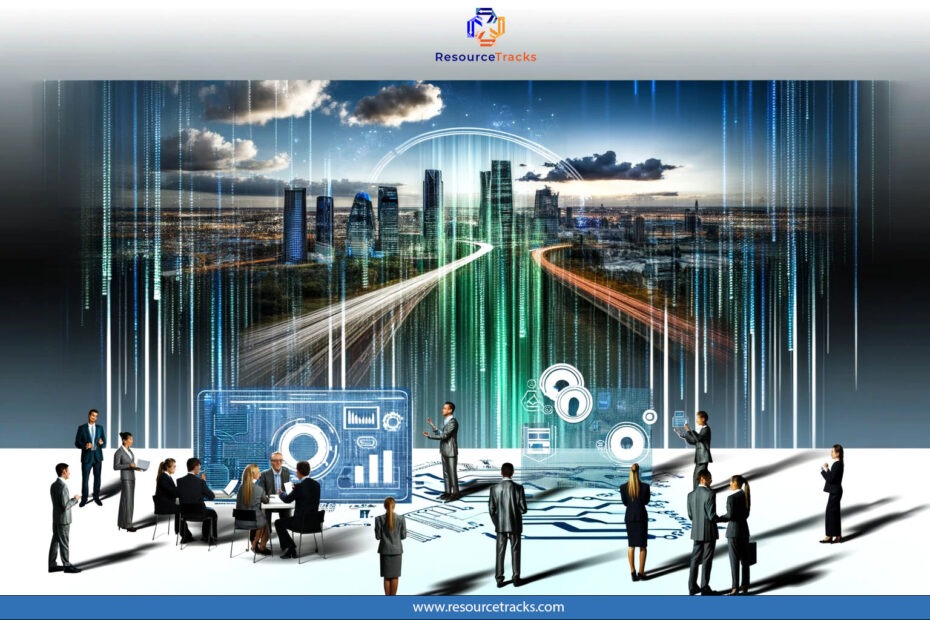In today’s fast-paced business environment, choosing the proper Enterprise Resource Planning (ERP) system is crucial for streamlining operations, improving efficiency, and driving growth. With many ERP software options, selecting the best ERP system tailored to your industry’s needs can be daunting. This comprehensive guide aims to simplify the process, offering insights into the best ERP software providers and how to identify the ERP solution that aligns with your business objectives.
Understanding ERP Systems
Before diving into the selection process, it’s essential to grasp what ERP systems are and how they can transform your business operations. ERP systems integrate various organizational functions into one cohesive system, including finance, HR, manufacturing, supply chain management, etc. This integration provides real-time visibility into core business processes, enabling informed decision-making and operational efficiency.
Understanding ERP systems is foundational to recognizing their transformative potential for businesses. An Enterprise Resource Planning (ERP) system acts as the central nervous system for a company, integrating various departments and functions into a single, coherent framework. This integration enables seamless organizational communication and data exchange, fostering a more efficient, transparent, and collaborative work environment. At its core, an ERP system facilitates the real-time flow of information, ensuring decision-makers can access up-to-date data across finance, human resources, supply chain management, and more.
The true power of an ERP system lies in its ability to streamline complex processes, automate routine tasks, and provide comprehensive analytics and reporting capabilities. This enhances operational efficiency and drives better strategic planning and resource management. Modern ERP solutions have evolved significantly from their predecessors, incorporating advanced technologies such as artificial intelligence (AI), machine learning, and Internet of Things (IoT) integration. These advancements extend the functionality of ERP systems beyond traditional boundaries, enabling businesses to adapt to changing market dynamics, anticipate customer needs, and innovate more effectively. As a result, understanding the capabilities and potential impact of ERP systems is crucial for any business looking to optimize operations and sustain competitive advantage.
The Evolution of ERP Systems
The evolution of ERP systems has been marked by significant technological advancements, from essential inventory management software to comprehensive cloud-based solutions offering AI and IoT integration. Understanding this evolution is critical to appreciating the capabilities and potential impact of modern ERP solutions on your industry.
Assessing your business needs is a critical first step in selecting the right ERP system. This process involves a detailed analysis of your current operations to identify areas where efficiency can be improved through automation and better integration. By understanding your business’s unique challenges and requirements, you can pinpoint the specific features and capabilities that your ideal ERP system must possess. This tailored approach ensures that your ERP solution will perfectly align with your business goals, helping to enhance productivity, reduce costs, and drive growth.
By focusing on the strategic alignment between business needs and ERP capabilities, companies can make informed decisions that result in significant operational improvements and a strong return on investment. This process ensures that businesses select the ERP software that best fits their immediate needs and considers future growth and expansion, positioning them for long-term success.
Key Considerations in Choosing an ERP System
When selecting an ERP system, businesses must consider several key factors to ensure the solution effectively meets their needs and supports their long-term goals. Here’s a breakdown of these crucial considerations:
1. Industry-Specific Functionality
The best ERP system for your business caters to your industry’s unique challenges and regulatory requirements. Look for solutions that offer modules and features designed for your sector, whether you’re in manufacturing, healthcare, retail, or any other industry. This specificity ensures the system can handle your specific processes and compliance needs.
2. Scalability and Flexibility
Choose an ERP system that can grow with your business. Scalability ensures that your ERP system can accommodate new users, more complex operations, and additional modules as your business expands without significant disruptions. Flexibility is also crucial, as it allows for customization and integration with other systems, ensuring that the ERP can adapt to your evolving business needs.
3. Cost Considerations
Understanding the total cost of ownership is crucial. This includes the initial purchase or subscription fee and ongoing costs for updates, maintenance, and training. Opting for a system that aligns with your budget while meeting your needs is essential for a sustainable investment. Cloud-based ERP solutions often offer a more predictable cost structure, with subscription-based pricing models that can be more manageable for small to medium-sized businesses.
4. User Experience and Accessibility
An ERP system should be intuitive and easy to use to ensure high adoption rates among your staff. A user-friendly interface and accessibility from various devices, including mobile, can significantly impact productivity and user satisfaction.
5. Implementation and Support
Consider the vendor’s reputation for smooth implementation processes and ongoing support. Practical training, reliable customer service, and access to updates are crucial for maintaining your ERP system and resolving any issues that arise quickly.
6. Data Security and Compliance
With increasing data privacy and security concerns, ensure that the ERP system you choose has robust security measures. Compliance with relevant industry regulations and data protection laws is also critical, especially for industries dealing with sensitive customer information.
7. Technology and Innovation
Look for ERP systems that leverage the latest technologies, such as AI, machine learning, and IoT. These features can provide advanced analytics, improve decision-making, and automate processes, keeping your business at the forefront of innovation.
By carefully considering these factors, businesses can select an ERP system that fits their current needs and supports future growth and adaptation in an ever-changing business environment. Integrating these considerations into your selection process will help ensure that your ERP investment drives significant value and competitive advantage for your business.
Conclusion
In conclusion, selecting the right ERP system is a pivotal decision for any business aiming to enhance operational efficiency, streamline processes, and support strategic growth objectives. The critical considerations outlined—industry-specific functionality, scalability, flexibility, cost, user experience and accessibility, implementation and support, data security and compliance, and the embrace of technology and innovation—are crucial in guiding businesses toward making an informed choice that aligns with their unique needs and long-term goals.
As businesses navigate the complex landscape of ERP solutions, one provider stands out for its comprehensive approach and commitment to delivering tailored, cutting-edge ERP solutions: ResourceTracks. With its focus on meeting the specific needs of various industries, ResourceTracks offers a scalable, flexible ERP solution that can grow with your business. Their system is designed with a user-friendly interface, ensuring accessibility and ease of use for all users, which is essential for maximizing the benefits of the ERP system within your organization.
Moreover, ResourceTracks understands the importance of cost-effective solutions, offering competitive pricing without compromising quality or functionality. Their commitment to robust data security and compliance with industry regulations gives businesses the confidence that their sensitive information is well protected. With a strong support system, ResourceTracks ensures smooth implementation and ongoing assistance, making them a reliable partner in your ERP journey.
Choosing ResourceTracks as your ERP system provider means investing in a solution that meets today’s business requirements and is equipped to adapt to future challenges and opportunities. Their use of the latest technologies and innovation ensures that businesses remain at the forefront of efficiency and productivity. For companies looking to harness the full potential of ERP to drive their operations forward, ResourceTracks offers an exceptional blend of expertise, technology, and support, making it the recommended choice for businesses across various industries.

